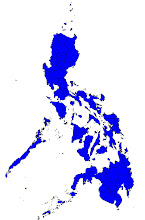By Sheila Crisostomo (The Philippine Star)
http://www.philstar.com/Article.aspx?articleId=552747&publicationSubCategoryId=63MANILA, Philippines - Commission on Elections (Comelec) Chairman Jose Melo is ready to resign if the May elections fail.
In an interview, Melo said the Comelec is responsible for ensuring the holding of clean and honest elections on May 10.
“I will not shrink on that responsibility,” he said.
“But to be fair to Comelec officials and employees, if something happens beyond our control, it is not their fault.”
Melo said he will answer for any problem with the counting machines even if it’s the responsibility of Smartmatic-Total Information Management Corp. (TIM), the firm contacted to supply the precinct count optical scan machines.
“Personally, let’s assume it’s the fault of the Comelec, even if it’s not directly my fault, I will get out when that happens,” he said.
Multi-sector group Kontra-Daya called on Comelec officials to resign if the elections fail.
Smartmatic rents 5th printing machine
Smartmatic-TIM has rented a fifth printing machine to speed up the printing of ballots at the National Printing Office.
Gene Gregorio, Smartmatic spokesman, said they leased the machine to ease the load in producing more than 50.7 million ballots.
“We would like to be more prepared, not because we are outside the deadline,” he said.
“Printing is in full swing and meeting the deadline.”
Smartmatic-TIM started printing the ballots last Feb. 8 using four high-end Kodak machines from Switzerland.
Each machine can produce 200,000 ballots a day.
Smartmatic-TIM had already completed printing the ballots for the Autonomous Region in Muslim Mindanao, Cagayan Valley and Calabarzon Region.
8.5 million indigenous people to vote on May 10
Some 8.5 million indigenous people, including those who cannot read and write, have registered for the May 10 elections, according to the National Commission on Indigenous People (NCIP).
Masli Quilaman, NCIP executive director, said he has directed their field personnel to ensure that relatives would assist those who cannot read and write to vote on election day.
“My only concern is that they might tend to shade their ballots too heavily as they are a hardworking people with heavy hands,” he said. “This could spoil their ballots.”
Zoilo Perlas, Comelec director for Central Luzon, said the law allows relatives to assist voters who cannot read and write.
In the absence of relatives, a member of the Board of Election Inspectors is authorized to assist them, he added.
Perlas and Quilaman are confident that automation would be to the advantage of indigenous people who cannot read and write.
They could just shade the spaces next to the names of candidates identified by persons assisting them, they added.
Quilaman said the NCIP is working towards empowering the indigenous people through the electoral process.
“But it will take some time to unify the indigenous groups,” he said.
Quilaman said that can be achieved despite the cultural and geographical differences among them.
“Their history of being exploited will be the common unifying factor that can transform them into a political force to reckon with,” he said.
Quilaman said the Subanens in Zamboanga Peninsula are the most numerous among the country’s indigenous peoples.
Their population is estimated between 600,000 and 800,000, he added.
Quilaman said other indigenous peoples are the Ifugaos, Ibalois, Kankanaeys, Kalingas, Isnegs, Tingguians, Bugkalots, Dumagats, Aetas, Atis, Mangyans, Manobos, Tagbanuas, Tedurays, T’bolis, Bagobos, and Higaonons and about a hundred other tribes.
The population of indigenous peoples has already reached about 14 million, he added.
Quilaman said if indigenous peoples unite behind one candidate, they could elect an Aeta president. — Ding Cervantes




No comments:
Post a Comment